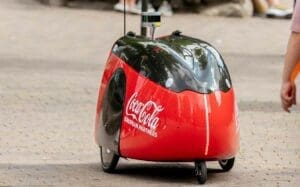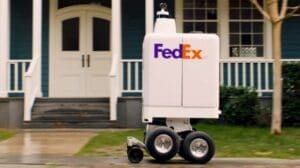 For the last few months, Patriots fans have been wondering what Rob Gronkowski’s “next chapter” will be. As a fan, my obvious hope was that after some down time and the chance to heal his body, he would decide to rejoin the team. Earlier this week, Gronkowski held a press conference to finally announce his next chapter. And while he did not rule out a return to the field (nor did he in any way confirm it), he did shed some light on just what he will be doing (selling). At a press conference in Manhattan, Gronkowski noted that injuries had taken all the joy out of football. So now, he is partnering with Abacus Health to launch a line of CBD products. CBD oil is a non-intoxicating marijuana extract that has been credited with helping treat a host of medical problems from epileptic seizures to anxiety to inflammation and chronic pain. Gronkowski said that he is pain-free for the first time in over a decade, and while he feels he could still physically play, he is not in the right mindset to do so. One thing he did not do was rule out a return to football, just noting that if he has the desire to play again, he would consider it – but not anytime soon. Here’s hoping he gets the urge to join the Pats for a playoff run later this year. And now on to this week’s logistics news.
For the last few months, Patriots fans have been wondering what Rob Gronkowski’s “next chapter” will be. As a fan, my obvious hope was that after some down time and the chance to heal his body, he would decide to rejoin the team. Earlier this week, Gronkowski held a press conference to finally announce his next chapter. And while he did not rule out a return to the field (nor did he in any way confirm it), he did shed some light on just what he will be doing (selling). At a press conference in Manhattan, Gronkowski noted that injuries had taken all the joy out of football. So now, he is partnering with Abacus Health to launch a line of CBD products. CBD oil is a non-intoxicating marijuana extract that has been credited with helping treat a host of medical problems from epileptic seizures to anxiety to inflammation and chronic pain. Gronkowski said that he is pain-free for the first time in over a decade, and while he feels he could still physically play, he is not in the right mindset to do so. One thing he did not do was rule out a return to football, just noting that if he has the desire to play again, he would consider it – but not anytime soon. Here’s hoping he gets the urge to join the Pats for a playoff run later this year. And now on to this week’s logistics news.
- Coca-Cola trials robots to deliver beverages at UK theme park
- FedEx testing robot delivery in Memphis
- Amazon agrees to take equity stake in Canadian airline Cargojet
- China soy imports from US soar in July
- Cork boosts customs facilities ahead of Brexit
- Drivers push for 30-minute break flexibility
- Cargo thefts down 14 percent in Q2
 Robot deliveries have been all the rage, at least from a testing standpoint over the last few years. Coca-Cola is jumping on the bandwagon. Although, this one is a little bit different, as the majority of tests have been for last mile deliveries of direct to consumer goods. Coca-Cola European Partners (CCEP), the world’s largest Coca-Cola bottler, is piloting robotic technology to deliver beverages to consumers at UK theme park Alton Towers. The company is partnering with TeleRetail for the trial. During the trial, the robot will collect products from the Alton Towers’ distribution center and deliver them to drinks outlets across the park. The robots will use artificial intelligence, GPS technology, sight, sound, and motion sensors to safely navigate around people and objects. It uses laser sensors to judge the distance to potential obstacles, enabling it to stop safely and avoid collisions. to maneuver around the park and avoid visitors. The robot travels at 3mph and distances of up to 30 miles.
Robot deliveries have been all the rage, at least from a testing standpoint over the last few years. Coca-Cola is jumping on the bandwagon. Although, this one is a little bit different, as the majority of tests have been for last mile deliveries of direct to consumer goods. Coca-Cola European Partners (CCEP), the world’s largest Coca-Cola bottler, is piloting robotic technology to deliver beverages to consumers at UK theme park Alton Towers. The company is partnering with TeleRetail for the trial. During the trial, the robot will collect products from the Alton Towers’ distribution center and deliver them to drinks outlets across the park. The robots will use artificial intelligence, GPS technology, sight, sound, and motion sensors to safely navigate around people and objects. It uses laser sensors to judge the distance to potential obstacles, enabling it to stop safely and avoid collisions. to maneuver around the park and avoid visitors. The robot travels at 3mph and distances of up to 30 miles.
 Speaking of robots, FedEx is beginning to test its long-awaited trial of robot deliveries in downtown and East Memphis. The robots, which have been named the SameDay Bot, will not actually be making deliveries when the pilot program starts. Instead, the company will use the robots to test out potential routes for when the robots can begin to make deliveries. The testing phase of robotic deliveries is incredibly important, and it looks like FedEx does not want to risk any delays in deliveries due to the robots. The robots will be used for same-day shipping. The company doesn’t anticipate the robot will replace current same-day delivery service, but will, instead, complement their fleets.
Speaking of robots, FedEx is beginning to test its long-awaited trial of robot deliveries in downtown and East Memphis. The robots, which have been named the SameDay Bot, will not actually be making deliveries when the pilot program starts. Instead, the company will use the robots to test out potential routes for when the robots can begin to make deliveries. The testing phase of robotic deliveries is incredibly important, and it looks like FedEx does not want to risk any delays in deliveries due to the robots. The robots will be used for same-day shipping. The company doesn’t anticipate the robot will replace current same-day delivery service, but will, instead, complement their fleets.
 It is no secret that Amazon is continuing to grow its logistics network, with a keen eye on building out its air capabilities. Amazon is working on its first air cargo hub at Cincinnati/Northern Kentucky Airport, as well as leasing more planes to transport goods between distribution centers. Amazon will acquire a minority equity stake in Canadian cargo airline Cargojet Inc., Amazon’s air carrier partner in Canada. Cargojet provides overnight air deliveries that support Amazon’s “middle-mile” Canadian network, which links the company’s facilities with other locations prior to the execution of the final delivery to customers. The financial agreement is designed to strengthen Amazon’s commitment to using Cargojet’s services. Cargojet operates 21 freighters and plans to add nonstop flights in its 15-city Canadian network.
It is no secret that Amazon is continuing to grow its logistics network, with a keen eye on building out its air capabilities. Amazon is working on its first air cargo hub at Cincinnati/Northern Kentucky Airport, as well as leasing more planes to transport goods between distribution centers. Amazon will acquire a minority equity stake in Canadian cargo airline Cargojet Inc., Amazon’s air carrier partner in Canada. Cargojet provides overnight air deliveries that support Amazon’s “middle-mile” Canadian network, which links the company’s facilities with other locations prior to the execution of the final delivery to customers. The financial agreement is designed to strengthen Amazon’s commitment to using Cargojet’s services. Cargojet operates 21 freighters and plans to add nonstop flights in its 15-city Canadian network.
 As the trade war between the US and China continues to heat up, with rhetoric from both sides reaching a fever pitch, both sides have seen an impact from the recent truce. According to customs data, during the trade truce, China’s July soybean imports from the US jumped three-fold from the previous year. China is the world’s largest buyer of soybeans, and last July had slapped a 25 percent tariff on a list of US products which included soybeans. In December, China began purchasing soybeans again as part of a bilateral truce. Well, those soybeans have finally made their way to China. In July of 2019, China brought in 911,888 tons of soybeans from the United States, up from last year’s 308,127 tons, and up 48 percent from 614,805 tons in June. It will be interesting to see how things continue to shake out based on the latest round of talks.
As the trade war between the US and China continues to heat up, with rhetoric from both sides reaching a fever pitch, both sides have seen an impact from the recent truce. According to customs data, during the trade truce, China’s July soybean imports from the US jumped three-fold from the previous year. China is the world’s largest buyer of soybeans, and last July had slapped a 25 percent tariff on a list of US products which included soybeans. In December, China began purchasing soybeans again as part of a bilateral truce. Well, those soybeans have finally made their way to China. In July of 2019, China brought in 911,888 tons of soybeans from the United States, up from last year’s 308,127 tons, and up 48 percent from 614,805 tons in June. It will be interesting to see how things continue to shake out based on the latest round of talks.
 Brexit is looming with a new October 31 deadline, and EU companies are preparing for the fallout. The Port of Cork in Ireland has doubled the size of its customs facilities to reduce processing times at the border in the event the UK leaves the EU without a deal. The Port of Cork concluded that the no-deal Brexit scenario will require more rigorous checks and declarations, which will significantly increase waiting and processing times at the border. The Port of Cork chief executive Brendan Keating said that the port, including the new Cork Container Terminal, has made extensive preparations so that the importers and exporters can manage their operations from the port smoothly. A new terminal building, known as the Cork Container Terminal, is being constructed with an investment of $89 million. The facility is scheduled to become operational by 2020.
Brexit is looming with a new October 31 deadline, and EU companies are preparing for the fallout. The Port of Cork in Ireland has doubled the size of its customs facilities to reduce processing times at the border in the event the UK leaves the EU without a deal. The Port of Cork concluded that the no-deal Brexit scenario will require more rigorous checks and declarations, which will significantly increase waiting and processing times at the border. The Port of Cork chief executive Brendan Keating said that the port, including the new Cork Container Terminal, has made extensive preparations so that the importers and exporters can manage their operations from the port smoothly. A new terminal building, known as the Cork Container Terminal, is being constructed with an investment of $89 million. The facility is scheduled to become operational by 2020.
The formal comment period has kicked-off for the Federal Motor Carrier Safety Administration’s (FMCSA) proposal to enact hours of service reforms. At the Great American Trucking Show, many drivers took advantage of the opportunity the opportunity to voice their opinions about the current regulations regarding breaks during their hours of service. Instead of a hard 30-minute break, several pushed for allowing a cumulative break, in which drivers could take three 10-minute stops or two 15-minute stops to satisfy the 30-minute break requirement. The public comment period on FMCSA’s hours-of-service notice of proposed rulemaking began Thursday. Friday’s listening session was the first of two planned listening sessions, though the agency could announce other listening sessions during the 45-day comment period.
And finally, with the holiday weekend coming, it’s always a good time to look at cargo theft. According to CargoNet, cargo thefts within the US and Canada were down 14 percent in the second quarter of 2019. The average value per theft was $152,844, for an estimated loss of $22.9 million in cargo stolen across the US and Canada in the quarter. Overall, CargoNet recorded 308 supply chain security incidents; 50 percent involved theft of one or more vehicles, and 55 percent involved theft or a chain-of-custody issue with a shipment. Food and beverage products were the most stolen commodity of the second quarter and grew when compared with the second quarter of 2017 and the second quarter of 2018.
That’s all for this week. Enjoy the long weekend and the song of the week, Black Sabbath’s Sweet Leaf.
















